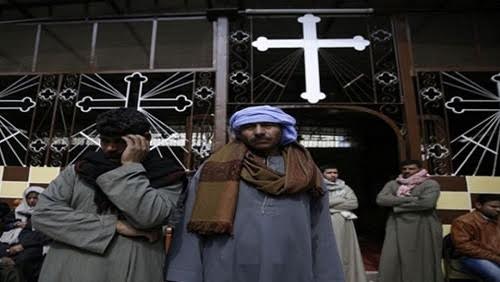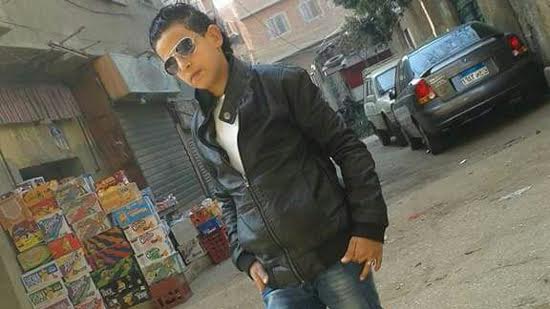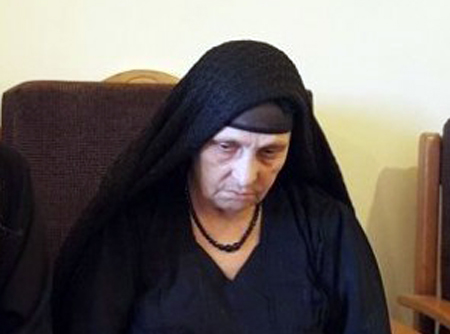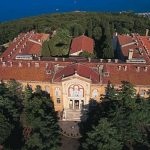By Nader Shukry – Watani –
It is a very sad fact that, despite all the changes in recent years, the forced displacement of Copts in Egypt continues to be a form of collective punishment inflicted on Coptic communities for real or imagined crimes.
Copts are an integral part of the Egyptian national fabric, and they were among those who took to the streets in the 30 June 2013 Revolution which led to the overthrow of the post-Arab Spring Islamist Muslim Brotherhood (MB) regime. As a result, the MB used them as the scapegoats by whose means they exacted revenge from all Egyptians; they went on a nationwide violence spree on 14 August 2013 that left five Copts dead and some 100 churches and Coptic establishment looted and burnt. Yet Copts barely complained; they accepted that the MB’s target was Egypt itself. They continued to offer countless sacrifices in lives and livelihoods for the sake of their homeland. So it caused a deep wound to find themselves victims of fanaticism and social injustice, not least being their forced displacement from their homes or villages, an illegal practice that has now reached alarming levels.
 At odds with the law
At odds with the law
The forced displacement of Copts openly defies the Constitution and the law. Article 63 of Egypt’s Constitution stipulates that, “All forms and types of arbitrary forced displacement of citizens shall be prohibited and shall be a crime that does not lapse by prescription”, while Article 95 confirms that, “Penalties are personal”. Despite this, entire Coptic families are being forcefully displaced as a form of collective punishment for some alleged wrongdoing by a family member. The ‘crime’ for which the punishment is inflicted is more often than not based solely on rumour and unproved allegations. In general, such wrongdoing, whether it exists or not, results in violent attacks against the entire Coptic community in the village or district. Village elders and clerics hasten to join forces with local politicians and security officials to hold urfi (traditional, non-official) ‘conciliation sessions’ between the perpetrators of violence and the victims to swiftly bring about social peace. The Copts, being the weaker and more peaceful party in such conflicts, are forcefully penalised, obliged to give up their legal rights, and ordered to leave the village or town. Social peace is achieved at the cost of unspeakable pain and injustice for the Copts. Furthermore, they have no option but to comply: if they so much as think they can defy the orders they risk their lives and those of their children, as well as anything and everything they have.
Watani here looks into the most recent cases of forced displacement in which entire Coptic families have been dislodged at the prompting of radical local Islamists and in apparent total absence of law enforcement.
Allegations
In the village of al-Sawalha in Shebin al-Qanater some 33km north of Cairo, a conciliation session took place with participation of members of the Shebin al-Qanater police and local MPs. They ruled that a Coptic family be banished from the village on allegations that their 14-year-old son had sexually assaulted a Muslim boy.
The facts are disputed. Manal Iskandar, the wife of Saad Khalil Tawfiq, a well-off Coptic trader, said that following a squabble between her teenage son and a nine-year old Muslim boy, the Muslim boy’s father filed a police report accusing her son of sexually assaulting his son. A preliminary medical examination by the local hospital reported slight injuries that might have been caused by an assault, but the official forensic examination later revealed no traces of any sexual assault. However, the family of the Muslim boy—who is the grandson of the village Imam, the person who leads prayers in a mosque—insisted on having the Christian family leave the village. The local security officials blessed the decision and even supervised the forced displacement.
Ms Iskandar told Watani: “In May 2016, my son Fadi, a student in the 9th school year in was on his way back from schoolwhen he was caught by a man called Ahmed Mimi, who was accompanied by a police officer. The men took him, without notifying us, to the police station where he was accused of sexually assaulting Mr Mimi’s son. He was kept in custody for 55 days, during which he was treated badly and often deprived of food.” Despite pleas from his family, Fadi was not allowed to take his final exams.
Calls from loudspeakers
Ms Iskandar claimed that the Muslim boy’s grandfather used the mosque’s loudspeakers to incite the Muslim villagers against them by shouting out that his grandson had been assaulted by a Christian boy. “When we realised how the village was being turned against us, we had to agree to a urfi conciliation session a couple of days after the incident,” she said. “The police commissioner and chief detective took part in the session, as well as a representative of the security directorate and three MPs. They ruled that we must sell our property and leave the village within three months, during which we would be confined to our house and not allowed to go out or open our shops. Some of those present at the urfi session even tried to confiscate our house in favour of the Muslim boy’s family, but they could not do so because of our staunch opposition.”
Ms Iskandar said the only reason why they accepted the harsh ruling was that it in exchange the Muslim boy’s family would drop all charges against their son. It did not take long for the Copts to discover that they had been deceived when the Muslim boy’s grandfather announced that they would not drop the charges and insisted on taking the case to court.
“Police officers stormed our house and accused us of openly insulting Islam,” Ms Iskanser said. “They forced us to leave our house immediately or else they would throw us in jail. This is how we were forcefully evicted from our home and village just two days after the conciliation session, although the ruling had given us three months to arrange for relocation. We have been unable to go home or open our shops since last May,” she said.

Suffering the consequences
“I am suffering from the consequences of the false accusations,” Saad Khalil Tawfiq, the father of the Coptic boy, said. “I am bedridden and can’t get out of the house; my condition has worsened since 28 January 2017 when the court sentenced my son to 15 years in prison even though the forensic report denied the occurrence of any sexual assault. The court, however, did not take this report into consideration and said it based its ruling on the testimonies of the Muslim child’s father, the police investigations, and the preliminary medical report by the local hospital. Could it be that the official forensic report was never placed before the judge? Sentencing my son to 15 years in prison is a very harsh sentence and is normally applied to crimes such as murder, not misdemeanor. My son, who had been released after 55 days in custody, has run away for fear of being imprisoned and is not attending school anymore; his entire future is at stake. We are now filing an appeal in court.
“My shops are closed; we were evicted from our house; we are under constant danger and banned from our hometown,” Mr Tawfiq, a wealthy trader, lamented. “What have we done to deserve this?” Villagers who spoke to Watani on condition of anonymity insisted that the Imam perpetrated the case against the Tawfiqs out of envy and spite, quite possibly also because Mr Khalil would not let him take advantage of him.
Worth noting is that the report of forensic examination states that the injuries sustained by the child may have resulted from contact with any solid object, and that the healing of the wounds indicates that they happened at a date prior to that of the incident and therefore cannot be considered proof of sexual assault.
Revenge attacks
The al-Mallah family, a wealthy Coptic family involved in real estate and construction, encountered a fate similar to the Tawfiqs. On 14 August 2013, MB protestors attacked the police station in Maghagha, Minya, some 190km south of Cairo, as well as the homes of the town’s Christians. Nabil al-Mallah, one of the six Mallah brothers who live in Maghagha, saidthat, as the police station was being attacked by the MB, and in an attempt to fire up the Muslim villagers into a frenzy, the loudspeakers in the mosques started screaming that my brother Ashraf was firing at the Muslims. We had to flee town immediately for fear for our lives. Huge sums of money were stolen from our shops, and our houses and property set ablaze. Until this day we have not been able to return home because of the death threats we receive. Several buildings we own were seized by the village Islamists and sold to themselves by means of falsified ownership documents.”
Over and above, Ashraf al-Mallah was accused of shooting a protestor during the August 2013 attack. The plaintiff filed a police report eight months after the incident, accusing Ashraf of shooting him and causing a gunshot wound to the abdomen with an exit wound in the back. The prosecution referred the case to court, and Ashraf al-Mallah was placed in custody for six months. The forensic report stated it was possible such a wound had occurred, but it was next to impossible to give its details because the wound would have healed with time.
“Why have officials kept silent about the displacement of our six families since 2013? Why isn’t the law enforced? After being the wealthiest and most prominent family in Maghagha, we are now threatened and unable to return home,” Nabil al-Mallah said.
Rumours of affair
Suad Thabet, 69, is one of the best-known victims of sectarian violence. In May 2016 she was attacked at her home in the village of al-Karm in Minya, some 250km south of Cairo, in the wake of a rumour that her 30-year-old son was having an affair with a Muslim woman from the village. It is taboo for a Christian man to liaise with a Muslim woman. The rumour led to an attack against the village Copts during which seven Coptic-owned houses were destroyed, and at the end of which Ms Thabet was dragged out of her home, stripped naked and beaten. The family had to leave the village after they filed four police reports against the attackers.
On 14 January 2017, Minya prosecution dismissed Ms Thabet’s beating and stripping case because of insufficient evidence, owing to the fact that several witnesses had gone back on their testimonies. Although the Armed Forces have repaired Ms Thabet’s house, which was damaged during the mob attack, the family is still unable to return home because of the death threats they keep receiving from the village’s Islamists, who want to force them to drop the case they filed concerning the burning of seven Coptic-owned houses during the mob attack and in which 25 villagers were charged with arson. Despite all the threats, Ms Thabet insists that she will not accept any settlement which does not guarantee that her rights are fully restored.
 The Constitution, laws, and treaties
The Constitution, laws, and treaties
Mounir Megahed, Coordinator of Masryoon [Egyptians] Against Religious Discrimination (MARED), said that the fact that villagers still held on to the old practice of holding urfi conciliation sessions to resolve sectarian issues reinforced sectarian discrimination against Copts. “Resorting to forcefully displacing the Coptic victims to please Islamist radicals is considered a crime as stipulated by the Constitution. It is a shame that the State security apparatuses participate in this crime instead of preventing it by reinforcing the law. Egypt’s Copts still pay a hefty price by being thrown out of their homes because the State failed to provide the needed mechanisms to ban such unfair practices against Egyptian citizens.”
Forced displacement is a crime in which citizens are uprooted from their families, homeland and memories without providing alternative housing or means of livelihood in total apathy and lack of concern about their fate, Dr Megahed says. Therefore, not only is it unconstitutional, but is also a violation of basic human rights as stipulated in international human rights treaties, and a crime against humanity. Forced displacement violates Article 49 of the Fourth Geneva Convention of 1949, which stipulates that, “Individual or mass forcible transfers, as well as deportations of protected persons from occupied territory to the territory of the Occupying Power or to that of any other country, occupied or not, are prohibited, regardless of their motive.
“Nevertheless, the Occupying Power may undertake total or partial evacuation of a given area if the security of the population or imperative military reasons so demand … Persons thus evacuated shall be transferred back to their homes as soon as hostilities in the area in question have ceased.”
___________________





